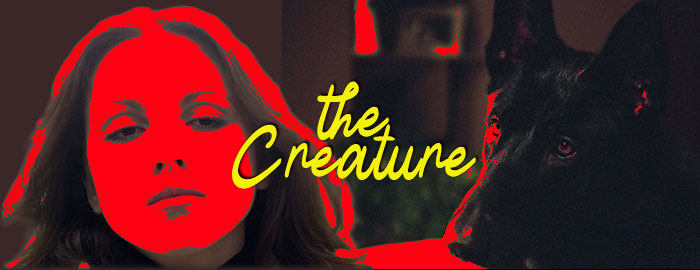
Color, 1977, 101 mins. 6 secs.
Directed by Eloy de la Iglesia
Starring Ana Belén, Juan Diego, Claudia Gravy
Severin Films (Blu-ray) (US R0 HD), Divisa (Blu-ray & DVD) (Spain R0 HD/PAL) / WS (1.85:1) (16:9)
After establishing 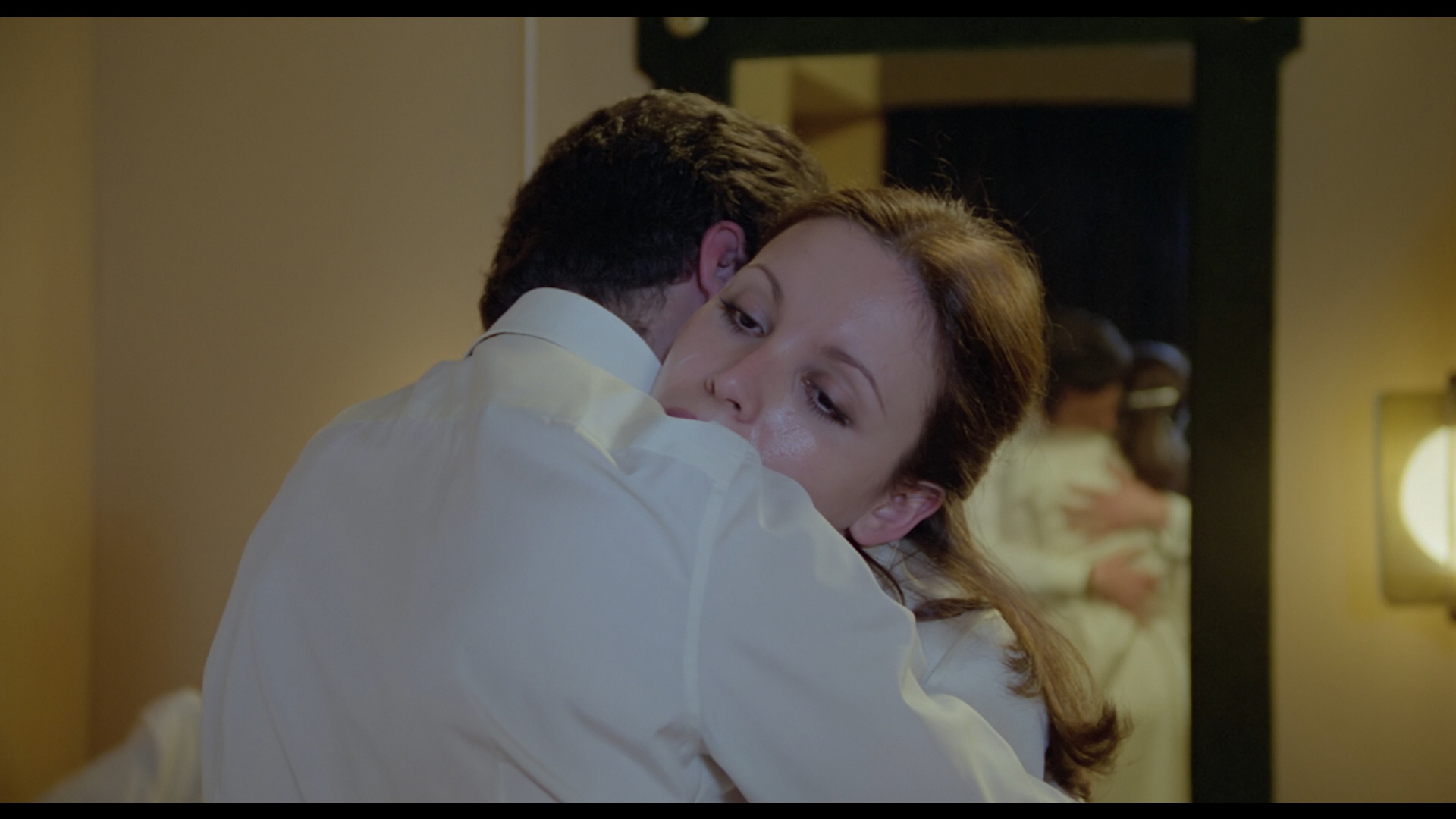 himself with memorable thrillers during the twilight years of Spain's fascist Franco era,
himself with memorable thrillers during the twilight years of Spain's fascist Franco era, 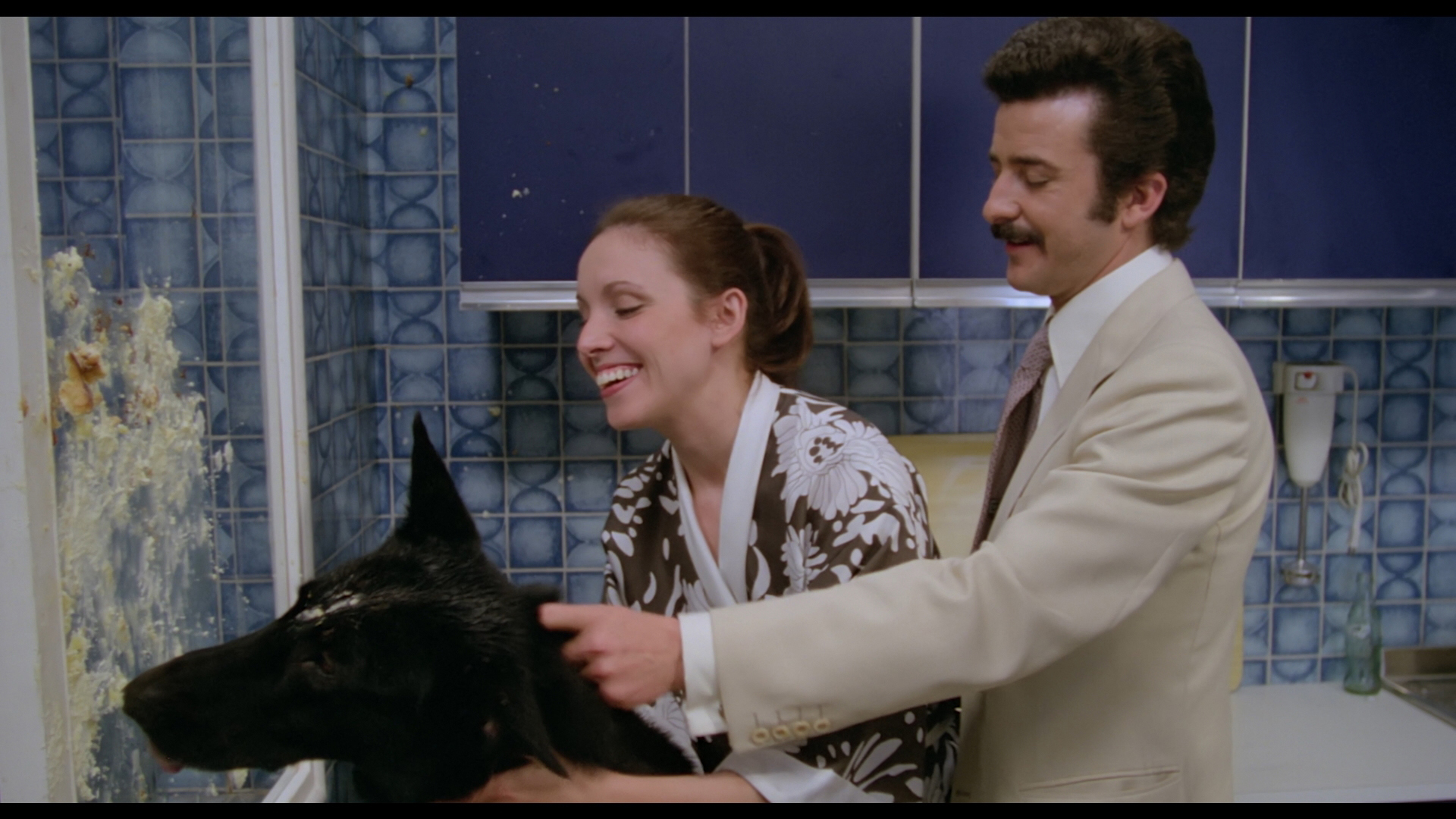 filmmaker Eloy de la Iglesia was expanding his horizons in the latter half of the '70s with a number of adventurous and taboo-pushing films. In between his more widely distributed Hidden Pleasures and El sacerdote he made The Creature (La criatura), a perverse and almost unclassifiable mixture of domestic melodrama, dark comedy, and biting social commentary against the ultra-conservative political factions and dogged machismo still lingering in Spain.
filmmaker Eloy de la Iglesia was expanding his horizons in the latter half of the '70s with a number of adventurous and taboo-pushing films. In between his more widely distributed Hidden Pleasures and El sacerdote he made The Creature (La criatura), a perverse and almost unclassifiable mixture of domestic melodrama, dark comedy, and biting social commentary against the ultra-conservative political factions and dogged machismo still lingering in Spain.
Informed by her doctor that she's pregnant (and can only smoke nine or ten cigarettes a day now for the baby's health!), Cristina (popular singer Belén) has mixed feelings when she breaks the news to her right-wing TV presenter husband, Marcos (Diego). Their marriage has already been strained, but they seem to be happy with the impending arrival -- until a stop at a gas station results in a dog attack that causes her to lose the baby. To recover, the couple goes to a seaside getaway from their honeymoon where Cristina bonds with a black 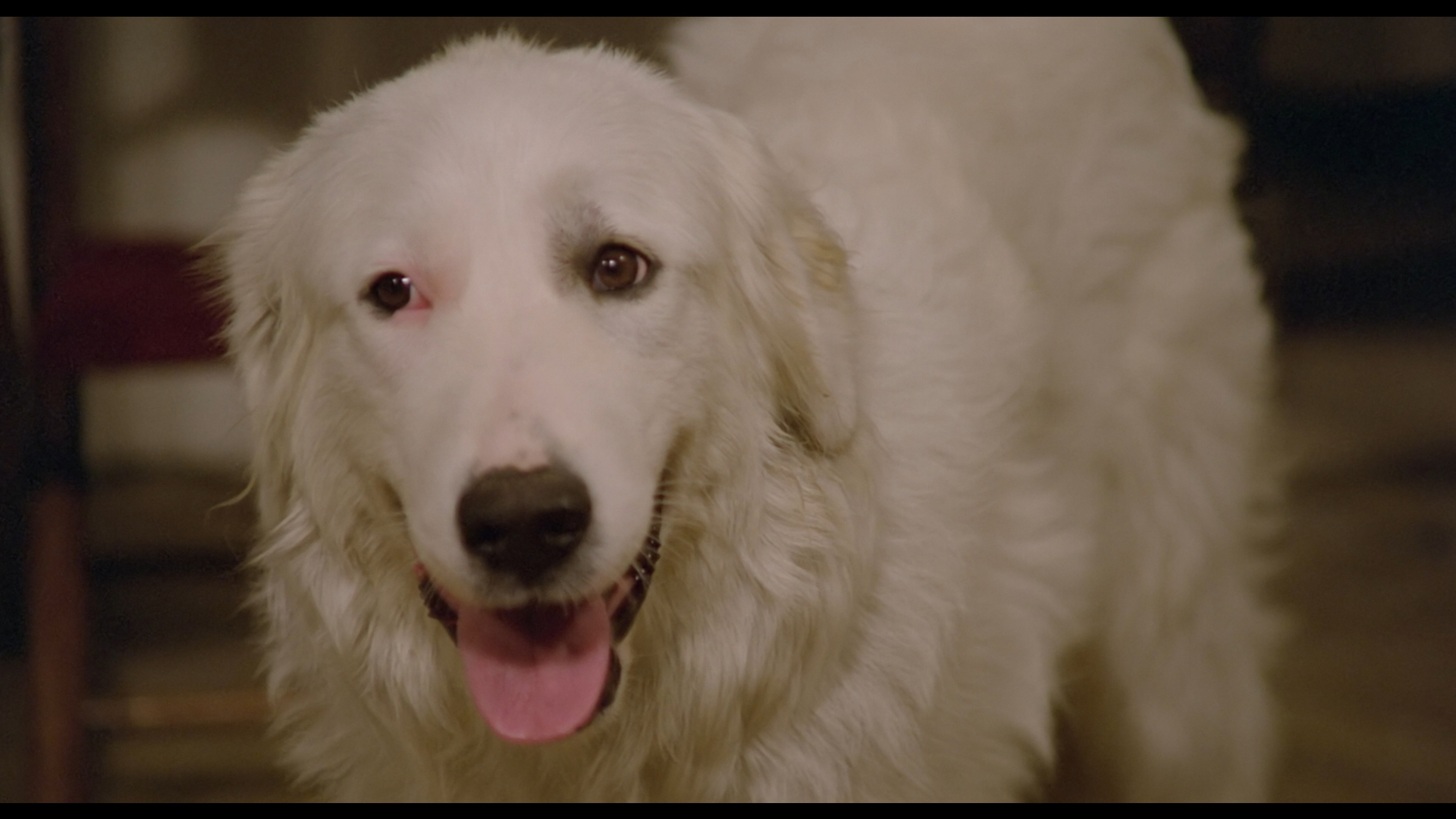 German Shepherd she instinctively named after her lost child, Bruno. From that point the marriage is
German Shepherd she instinctively named after her lost child, Bruno. From that point the marriage is 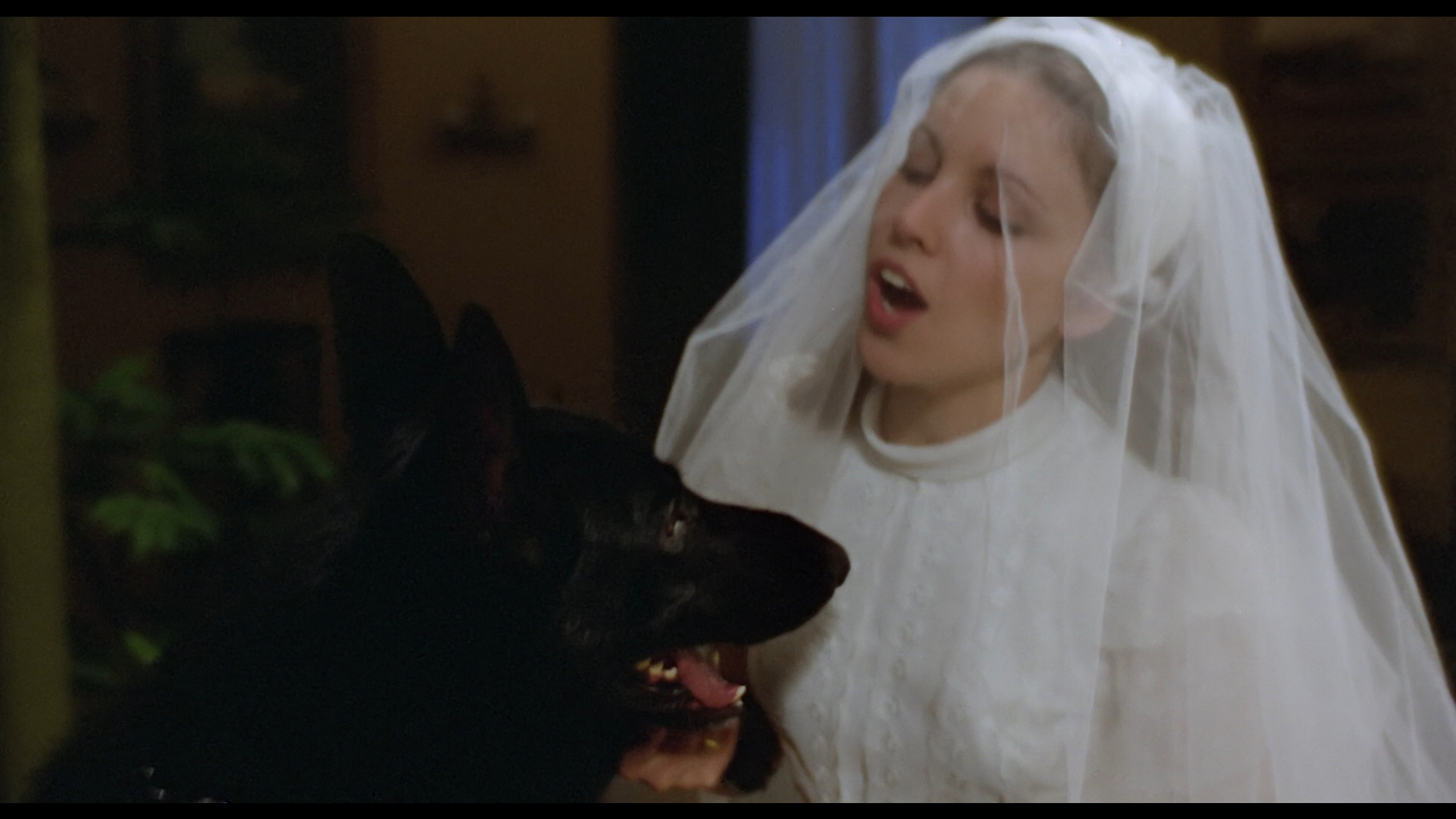 frayed even more by her growing attachment to the dog once they get back home, an ill-advised attempt to introduce a female mate for their pet, and Marcos' eroding refusals to sleep with a romantically aggressive coworker, Vicky (Matalo!'s Gravy), as he becomes far more politically ambitious.
frayed even more by her growing attachment to the dog once they get back home, an ill-advised attempt to introduce a female mate for their pet, and Marcos' eroding refusals to sleep with a romantically aggressive coworker, Vicky (Matalo!'s Gravy), as he becomes far more politically ambitious.
Obviously the big shock value in this film is the implied relationship between Cristina and her beloved dog, including a crazed "wedding" sequence you won't believe. However, the film isn't explicit at all about the implications of what's happening and is definitely more restrained than a later Spanish shocker, Bigas Luna's Poodle from 1979. Both Belén and early Iglesia regular Diego are impressive here working with some difficult material, especially a final act that gets downright traumatic and culminates in a savage diatribe against the system and an unsettling "happy" ending. The idea of using zoophilia as a social commentary device is still a touchy one, as seen in other films like Max Mon Amour and Sleeping Dogs Lie among others, but the very socialist Iglesia's use of it as an extreme response to totalitarianism (both in the home and on the populace) is still a very unique spin. He also uses some interesting tricks with composition and focus you wouldn't expect, with seemingly mundane shots thrown off-kilter by drawing your eye to a background or area of the frame you're not expecting. The end result is probably the closest 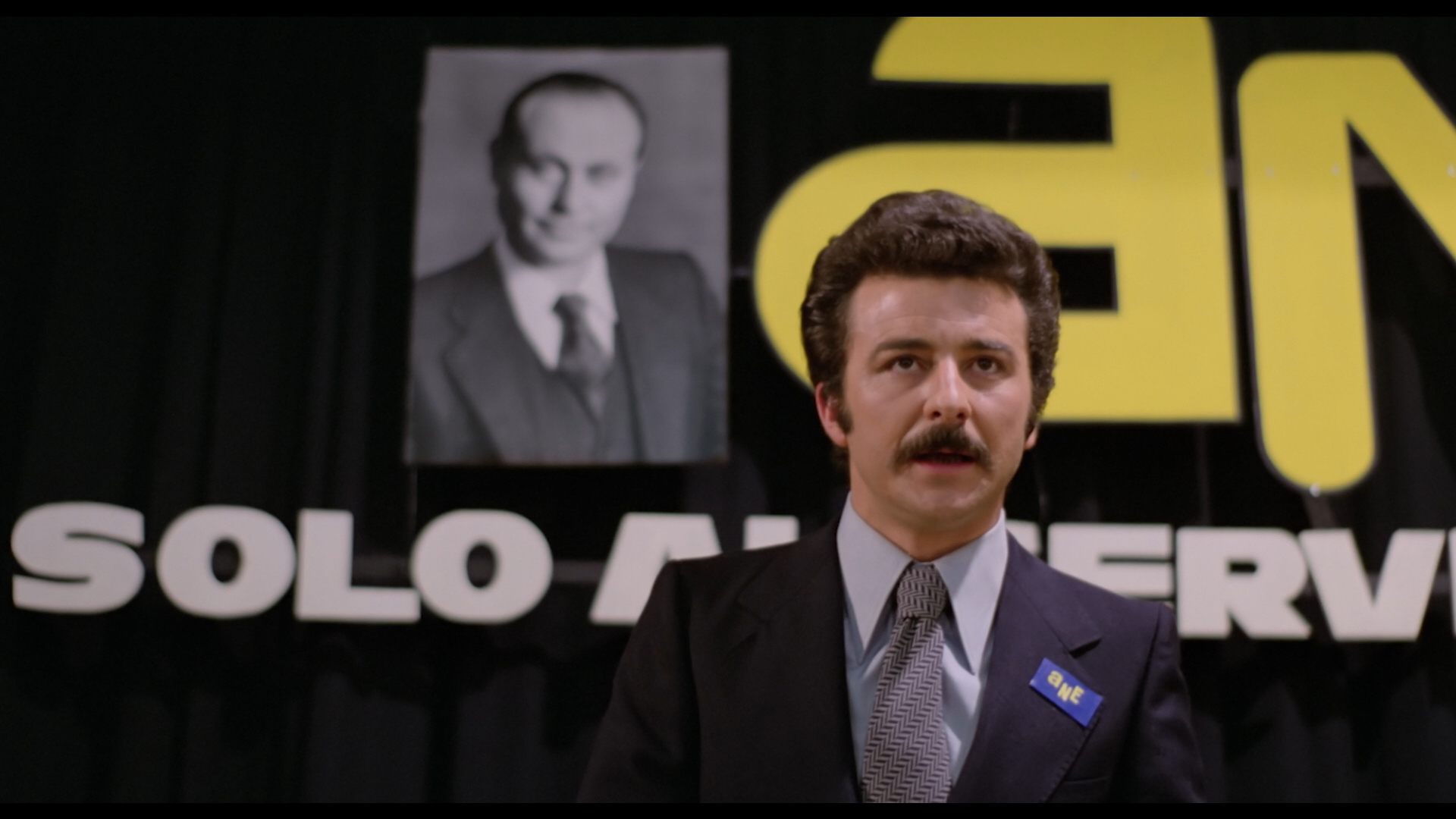 thing the director made to the realm of Marco Ferreri, dissecting how people respond to social
thing the director made to the realm of Marco Ferreri, dissecting how people respond to social 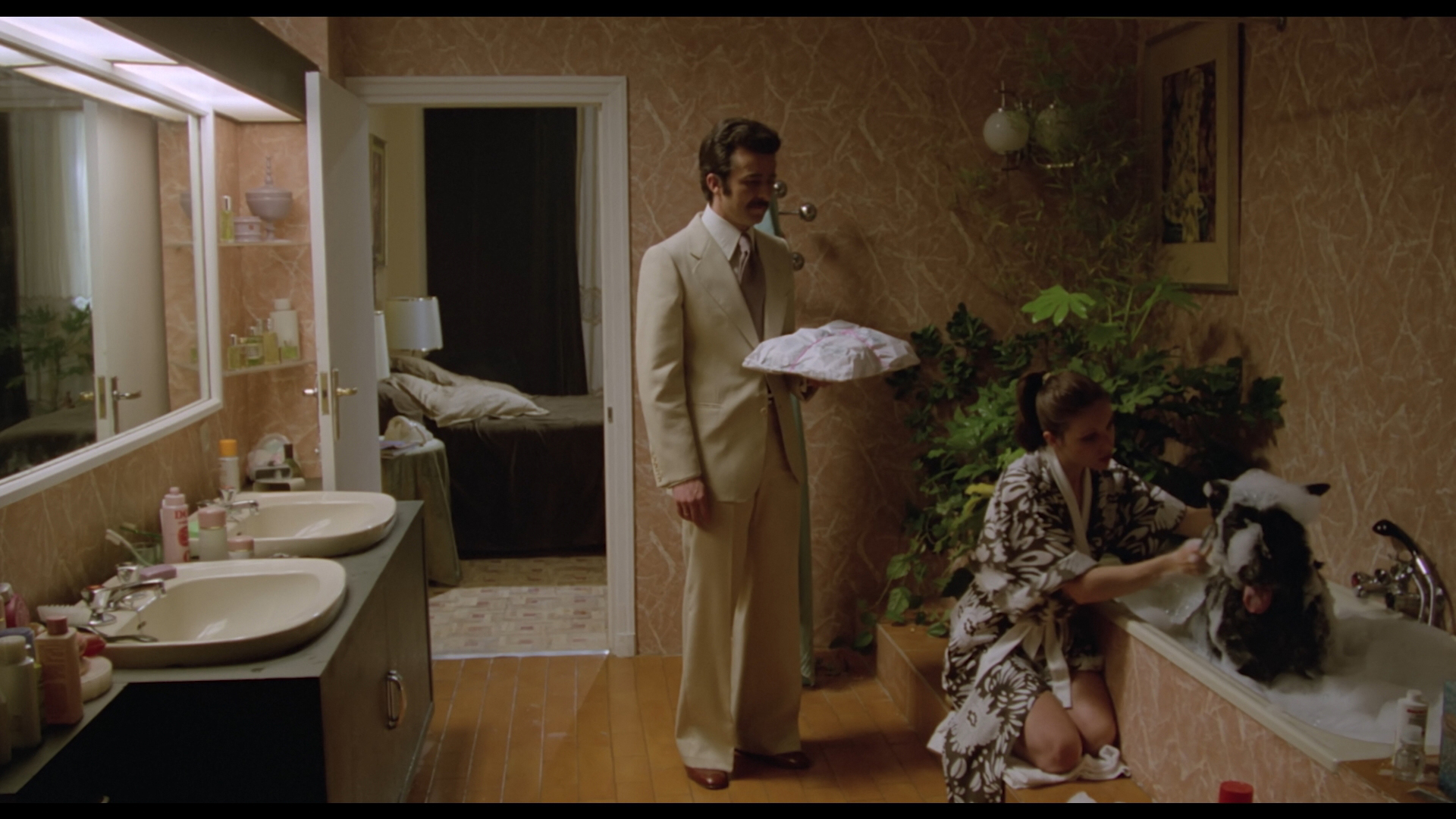 oppression in extreme and often bizarre ways.
oppression in extreme and often bizarre ways.
Until the 2024 Blu-ray from Severin Films (a release amusingly timed to coincide with A Dog Called... Vengeance), The Creature (whose title can be interpreted several ways) was only available on home video in Spain on VHS, DVD, and eventually Blu-ray, none with English subtitles. The U.S. debut features the same solid HD scan seen on the Spanish Blu-ray from Divisa, and it's of the same high quality level as Severin's prior Iglesia releases. The DTS-HD MA Spanish 2.0 mono track also sounds great and features optional English subtitles. "A Strange Movie" (22m41s) is a candid and really fascinating interview with assistant director Alejo Loren about his lengthy friendship with the director (and his nasty temper at times), the actors they both used in their films, meetings at the Communist Party of Spain and gay rights activities, a really funny incident involving an impromptu merkin for a body double, and the making of this film. You also get two appearances by filmmaker Gaspar Noé (Irreversible): first an interview (14m4s) about his discovery of Igelsia at a film festival, the importance of films like El sacerdote as S-rated titles in Spain, and the role of his sexuality in his films; and a July 2023 intro by Noé at the Cinémathèque Française (4m20s) explaining why this is his favorite of all the director's films.
Reviewed on July 14, 2024



 himself with memorable thrillers during the twilight years of Spain's fascist Franco era,
himself with memorable thrillers during the twilight years of Spain's fascist Franco era,  filmmaker Eloy de la Iglesia was expanding his horizons in the latter half of the '70s with a number of adventurous and taboo-pushing films. In between his more widely distributed Hidden Pleasures and El sacerdote he made The Creature (La criatura), a perverse and almost unclassifiable mixture of domestic melodrama, dark comedy, and biting social commentary against the ultra-conservative political factions and dogged machismo still lingering in Spain.
filmmaker Eloy de la Iglesia was expanding his horizons in the latter half of the '70s with a number of adventurous and taboo-pushing films. In between his more widely distributed Hidden Pleasures and El sacerdote he made The Creature (La criatura), a perverse and almost unclassifiable mixture of domestic melodrama, dark comedy, and biting social commentary against the ultra-conservative political factions and dogged machismo still lingering in Spain.  German Shepherd she instinctively named after her lost child, Bruno. From that point the marriage is
German Shepherd she instinctively named after her lost child, Bruno. From that point the marriage is  frayed even more by her growing attachment to the dog once they get back home, an ill-advised attempt to introduce a female mate for their pet, and Marcos' eroding refusals to sleep with a romantically aggressive coworker, Vicky (Matalo!'s Gravy), as he becomes far more politically ambitious.
frayed even more by her growing attachment to the dog once they get back home, an ill-advised attempt to introduce a female mate for their pet, and Marcos' eroding refusals to sleep with a romantically aggressive coworker, Vicky (Matalo!'s Gravy), as he becomes far more politically ambitious. thing the director made to the realm of Marco Ferreri, dissecting how people respond to social
thing the director made to the realm of Marco Ferreri, dissecting how people respond to social  oppression in extreme and often bizarre ways.
oppression in extreme and often bizarre ways.![]()